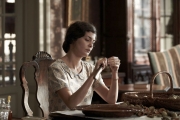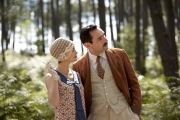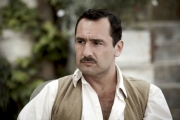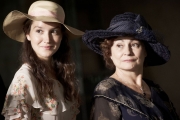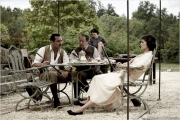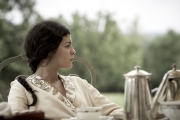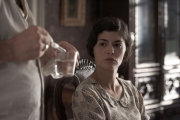Synopsis
In the Southwest region of France, the Landes, marriages are arranged to combine land parcels and unite rich families. Thus, young Thérèse Larroque becomes Mrs. Desqueyroux; but this young avant-gardiste woman does not intend to comply with provincial conventions. To free herself from the fate imposed upon her, she will stop at nothing to fully-live her life.
Cast & Crew
Director : Claude Miller
Screenplay : Claude Miller, Nathalie Carter
Starring : Audrey Tautou, Gilles Lellouche, Anaïs Demoustier, Catherine Arditi
Schedule & Presentation
![]() Presentation by and discussion with Annie Miller
Presentation by and discussion with Annie Miller
Sunday, March 24 – 4:40 p.m at the Byrd Theater ~ ![]() 1h50 ~ General Audience
1h50 ~ General Audience
Trailer

More informations
Choose a picture to see the filmography (source : IMDB)
![]()
How did the film Thérèse Desqueyroux come to be?
I had reread François Mauriac’s novel. Everything I like in a movie was there: an ambiguous atmosphere that requires the viewer to actively engage in the film. As for casting Audrey Tautou for the main part, she was exactly what I had in mind for Thérèse.
You really make Thérèse’s character mysterious. Despite her interior turmoil, she is almost terrifyingly “smooth.”
It was the best way to portray the tragedy that this young woman lived through. The conventional thinking she was raised with pushes her into such an absurd situation that she takes it all the way to the point of putting herself in danger with the law.
It is all the more tragic in the sense that thinking to make peace within herself she marries Bernard Desqueyroux, brilliantly interpreted by Gilles Lellouche.
Who else could play Bernard? Gilles is great at playing the stiffness of a man raised within staunch family traditions and at the same time allowing all the love he feels for his wife to seep inside him.
The real guilty party is the bourgeoisie.
It is the power of family lineages, that deceptive incarceration which holds everyone prisoners by self-infliction and for generations on end. It is not even a topic of discussion –things are kept to oneself.
The end of the film has a real luminous quality.
Bernard opens the birdcage and says to Thérèse: “You’re on your own.” It is a real expression of love. I like that ending – a valiant ending. I think the most beautiful moments in life are when you can regain your freedom while forgiving your partner. And those two have forgiven each other. This will be my first film to have a happy ending.



